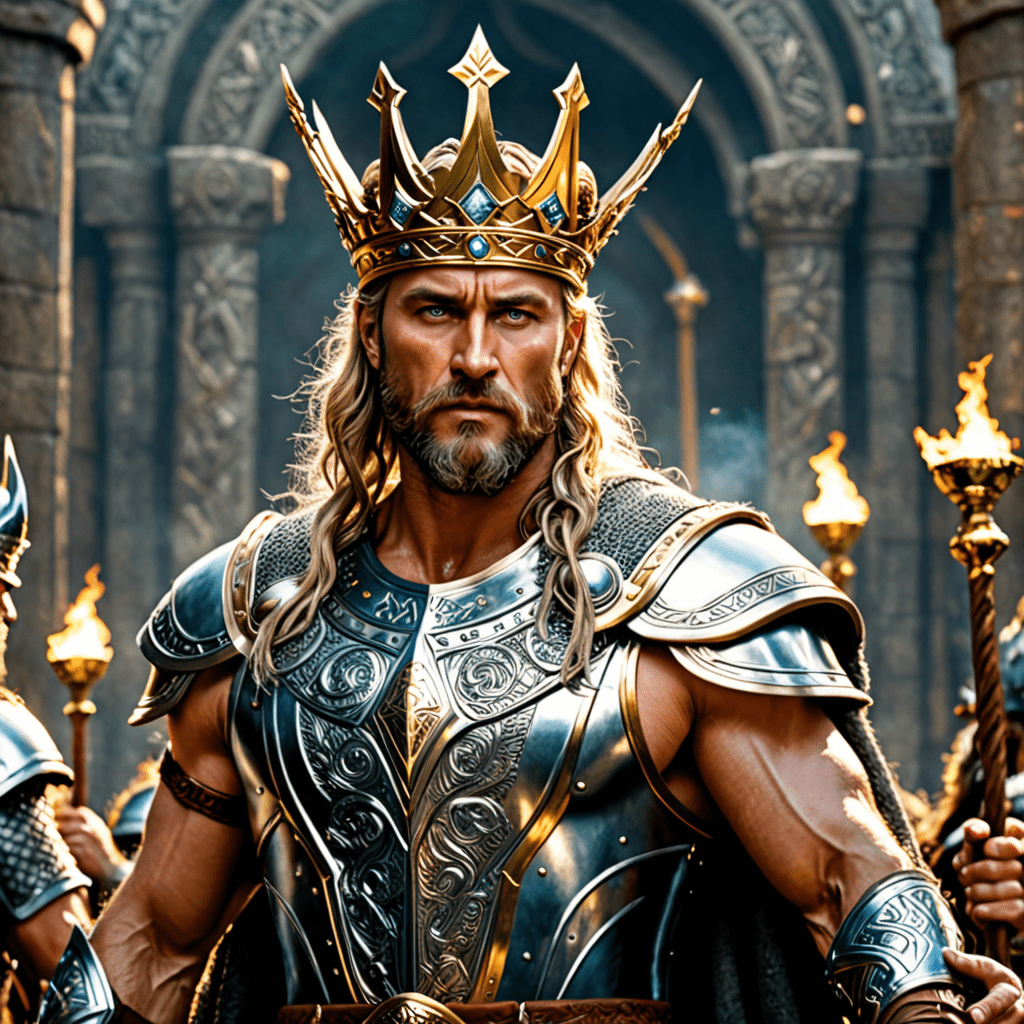The Concept of Kingship in Norse Mythology
1. What is the Role of Kingship in Norse Mythology?
In Norse Mythology, kingship is a significant and complex concept closely intertwined with the idea of rulership, leadership, and divine mandate. Kings in Norse mythology are seen as more than just political leaders; they embody a symbolic connection between humanity and the gods. The role of a king goes beyond mere governance to include the preservation of order, protection of the people, and honoring of traditions.
2. Divine Origins of Kingship in Norse Mythology
According to Norse mythology, the idea of kingship has divine origins. The first king in Norse cosmology was Heimdall, who established the societal structure that later kings would follow. Kings were believed to descend from gods or held divine favor, linking them to the spiritual realm and conferring upon them a sacred duty to rule with wisdom and strength.
3. The King as the Protector and Keeper of Balance
In Norse mythology, the king is seen as the protector of the realm and the people, tasked with maintaining balance and order in the turbulent world of gods and giants. Kings were expected to demonstrate courage, wisdom, generosity, and justice in their rule, reflecting the ideal characteristics of a true leader in Norse society.
4. The Enduring Legacy of Kingship in Norse Culture
The concept of kingship in Norse mythology has left a lasting legacy in Northern European cultures. Even today, elements of Norse kingship can be observed in modern Scandinavian monarchies and societal structures. The ideals of leadership, honor, and unity that defined Norse kingship continue to resonate with people, highlighting the enduring power of myth and legend in shaping cultural norms and values.
FAQ about The Concept of Kingship in Norse Mythology
What is the significance of kingship in Norse mythology?
In Norse mythology, kingship was deeply intertwined with divine authority and the right to rule was often seen as a divine mandate. The king was expected to embody qualities of courage, wisdom, and leadership, reflecting the ideals of the gods.
Who were some notable Norse mythological kings?
Some notable Norse mythological kings include Odin, the Allfather and ruler of Asgard; Thor, the god of thunder and defender of Asgard; and Freyr, the god of fertility and kingship.
What role did kings play in Norse society?
Kings in Norse society served as not just political leaders, but also as religious figures and protectors of their people. They were expected to uphold the laws, lead their warriors in battle, and maintain the prosperity of the kingdom.




